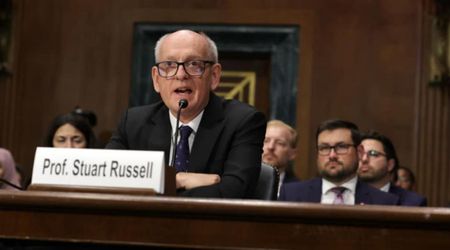All About the Fake Court Document Scam Which is Scaring People Into Paying for Bail

Authorities have sounded the alarm for a new scam utilizing fake court documents and false charges under the Covid relief programs to falsely obtain “preemptive bail” payments in an official press release. Scammers are posing as law enforcement officials, targeting residents and sending them fake federal court notices.
Fraudsters are constantly creating scams to pray on victims but our teams work everyday to hold them accountable. A new scam used falsified court documents and government letters to lure people into "preemptive bail payments" for fake covid relief charges.https://t.co/xnutGzh3oH
— Anthony Guglielmi (@SecretSvcSpox) February 2, 2024
What is the fake court document scam?
In the scam, the imposters pretend to be law enforcement officers and send text messages to a target recipient. These messages may include images of fake federal court documents that falsely assert criminal fraud charges against the recipient. Such charges are often falsely framed based on the Paycheck Protection Program or the Coronavirus Aid, Relief, or the Economic Security (CARES) Act. These fake court notices also instruct the victims to pay a “preemptive bail” to avoid arrest.
Apart from the bogus federal court documents, the scammers may also send images of fake correspondence from the FDIC OIG and FDIC Legal Division which can make the “preemptive bail opportunity” even more credible. They may also use the FDIC or FDIC OIG logo and seal to make the scam appear legitimate. “These fraudsters utilize fear and pressure tactics to create a sense of urgency in their victims and often prey on the most vulnerable in our society,” said U.S. Attorney Robert Troester in an official release. But as soon as the victims make the payment, these fraudsters disappear without a trace.

How to be safe from such scams?
Americans lost nearly $8.8 billion to various frauds in 2022, and about $2.7 billion combined to scams originating on social media between 2021 and June 2023. Hence it is vital for citizens to stay vigilant and gain information on the ongoing scams to be safe.

The official press release stated that the U.S. Attorney’s Office, the FDIC OIG, or the federal court will never reach out to the public via text messages or calls, asking for sensitive personal information, or demanding payments. Even in real cases, the authorities will never ask for payments through gift cards, wire transfers, or digital currency. Further, the release mentioned that the FDIC and the FDIC OIG will never send unsolicited correspondence that requests sensitive personal information or demands payments.
In case people receive such fake correspondence, they should immediately report it to the FDIC OIG hotline. Citizens are also advised to keep a regular tab on such scams and spread awareness. The USA.gov website “Scams and Fraud” (https://www.usa.gov/scams-and-fraud) identifies the different types of ongoing scams and where and how to report them.
What to do if you fall prey to the fake document scam?
If you are a victim of such scams or have any information on such scams, the you should immediately contact the Secret Service. The scam can be reported to the FDIC OIG Hotline at www.fdicoig.gov/oig-hotline or 1-800-964-FDIC. The OIG reviews all allegations and investigates such matters. Citizens can also visit the United States Courts website on Federal Court Scams at www.uscourts.gov/about-federal-courts/federal-courts-public/federal-court-scams to learn more or report such scams.























